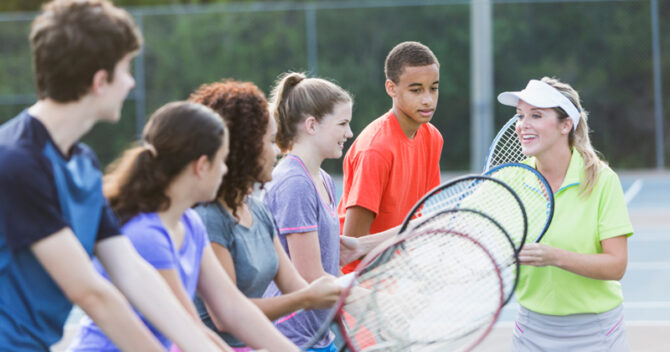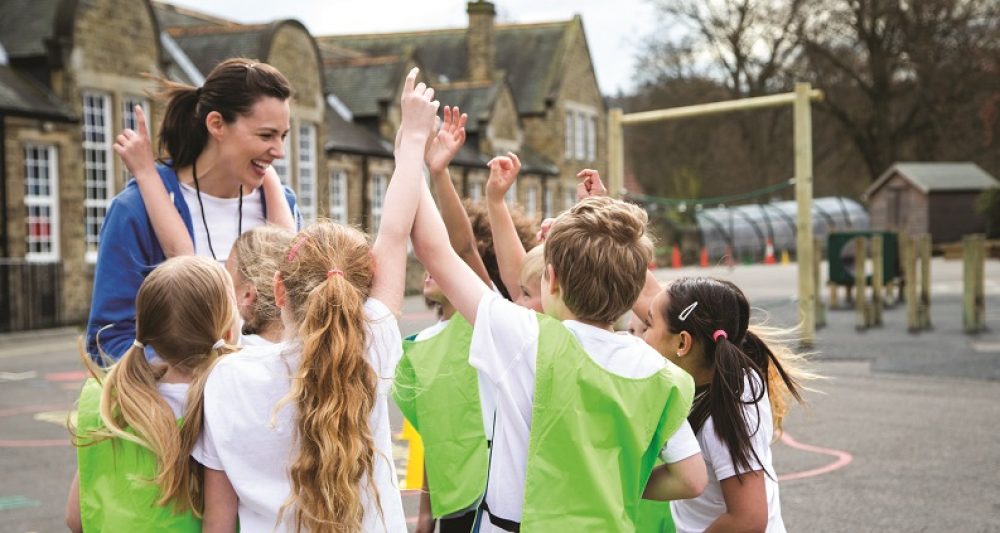A “high-quality” PE curriculum goes beyond normal lesson time and is inclusive of all pupils, Ofsted has said.
The watchdog today published its latest subject research review, having previously covered subjects such as geography, languages, maths and science.
Chief inspector Amanda Spielman said that an ambitious PE curriculum “levels the playing field by giving all pupils the benefits of physical activity” and said she hoped Ofsted’s review “helps raise the quality of PE for all young people”.
As with its previous reviews, Ofsted notes there “is no single way” of achieving high-quality PE, but has identified common traits of successful approaches.

Here are some of the key pieces of advice.
1. Build a ‘strong foundation’ of fundamental movement skills
Ofsted said a “strong foundation of fundamental movement skills” (FMS) should be developed – starting in early years.
FMS are “basic learned motor patterns” that don’t occur naturally and are divided into three skill sets: locomotor skills (like running), stability skills (like balancing) and manipulation skills (like catching).
The review states FMS are “best developed” between the ages of three and eight and “once secure…form the building blocks for more complex movement skills”.
Research has found younger pupils in England are “not competent in basic FMS”, especially when compared to other countries, but Ofsted said they were a “precondition to accessing the later, more specialised movement patterns required for competence in sport and physical activity”.
2. Make sure pupils’ movement is ‘context-related’
Mastering FMS may make pupils’ movement efficient and effective, but it must also be “intelligent and context-related”.
Pupils need to be “explicitly taught the knowledge that informs and successfully directs their movement:that is, knowledge of rules, strategies and tactics”.
For example a pass in football may be powerful, but if it is to the wrong person it is “ineffective”.
Not all activities have their own rules but all have “strategies for success”, which pupils should know.
3. All pupils should feel included
Ofsted said the curriculum should meet the needs of all pupils, including those with special education needs or disabilities (SEND).
A high-quality curriculum will make “all pupils feel included and able to succeed within the subject”.
Studies found SEND pupils still faced “significant exclusion” from PE and were commonly given officiating roles such as “holding the stopwatch”.
Instead, teachers should “plan fully for inclusion and recognise that adaptations might be required for some pupils”.

4. Pupils ‘participate beyond their PE lessons’
An extra-curricular offer should be available to all pupils to provide the opportunity to “build, develop and refine knowledge”, Ofsted said.
A “systematic approach” to planning and delivering these offers will give pupils more time to practise and can help to put PE “at the heart of the school community”.
Extra-curricular provision should not be restricted to outside school hours, but can include opportunities for pupils to participate in physical activity and sport during breaks and lunchtimes.
5. Feedback nurtures belief pupils can ‘know more and do more’
It is important schools create a “supportive environment” where attainment is not viewed as fixed, Ofsted said.
In PE, pupils should “see their attainment as incremental and not defined by sex, ethnicity or other personal characteristics”.
Instruction and feedback in lessons should enable pupils to “develop their competency, reinforcing the important message that everyone can improve”.
This is particularly important for SEND pupils who typically participate less than their peers.
6. Allow pupils to ‘revisit’ important knowledge
Ofsted said in high quality PE, teachers “recognise that learning takes time” and make sure “pupils have enough time to revisit and develop their knowledge within a context before moving too quickly on to a new sport or physical activity”.
The watchdog said that without practising activities and revisiting prior learning, “it is more likely that memories of past performance will fade and pupils will have to relearn rather than revisit”.















Your thoughts